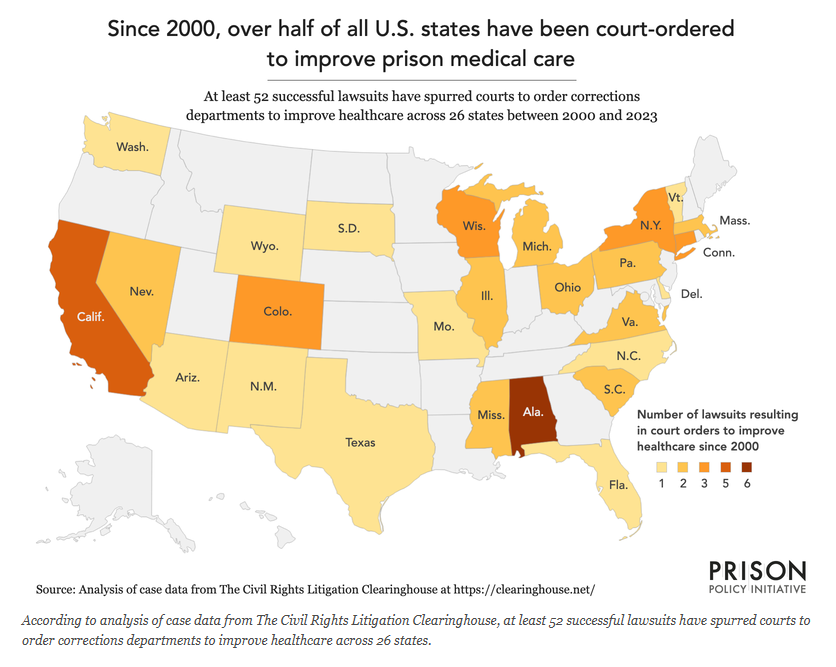Report: A Healthcare Crisis in US Prisons
Over half of US States were legally ordered to improve prison medical care

People incarcerated in US prisons and jails are disproportionately likely to have chronic health problems including diabetes, high blood pressure, and HIV, as well as substance use and mental health problems. Nevertheless, correctional healthcare is low-quality and difficult to access. While people in the United States have long struggled with cost, quality, and access to healthcare, the crisis is particularly severe for people confined in jails and prisons. Since 2000, conditions have been so bad that roughly half of all state prison systems have been court-ordered to improve mental and medical healthcare.
Quality issues include:
- Inadequate care, where many incarcerated people don't receive post-admission medical exams or diagnostic tests.
- Lack of continuity of care: Transitioning from prison to community healthcare settings can be difficult.
- Lack of evidence-based care: Lack of high-quality evidence to guide healthcare in prisons.
- Restrictive access: Incarcerated people often need to go through a correctional officer before seeing a doctor.
The effects of poor medical care in prisons, for both incarcerated people and the general public, have been disastrous. Each year that someone spends in prison cuts their life expectancy by two years, and mass incarceration has shortened the overall U.S. life expectancy by 5 years.
The abysmal state of health care behind bars bears much of the blame for those figures. Medical neglect kills hundreds of incarcerated people every year despite the 1976 Supreme CourtEstelle v. Gambleruling that deliberate indifference to medical needs amounts to cruel and unusual punishment.
A recent report from Prison Policy Initiative looks at the systemic problems leading to subpar healthcare services, and the resulting outcomes, in US carceral settings. You can read the report, "Cut-rate care: The systemic problems shaping 'healthcare' behind bars" at the Prison Policy Initiative website.
Prison Policy Initiative is a non-profit organization that produces cutting edge research to expose the broader harm of mass criminalization, and then sparks advocacy campaigns to create a more just society.










